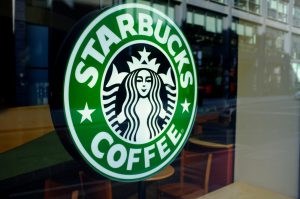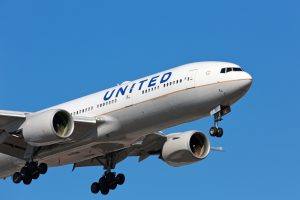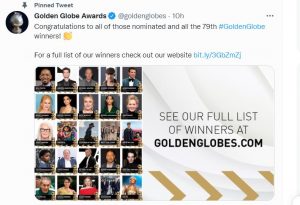With the Delta variant running rampant, businesses look to reintroduce restrictions
Here’s how communicators are sharing messages about vaccination requirements, mask mandates and other safety measures with employees and customers.
![High risk areas Some companies are choosing to delineate between high risk areas where cases are mounting quickly and other parts of the country where vaccination and other factors are holding new case numbers down. McDonald’s has announced it will require masks for both employees and customers in areas that meet a dangerous contagion threshold. The move comes after the CDC updated its masking guidance on July 27. USA Today reported: Most businesses including Walmart, Target, Lowe’s and Kohl’s are only requiring employees wear masks and strongly encouraging or recommending customers wear them. McDonald's confirmed the move to USA TODAY Monday, a year after it started requiring masks nationwide at its 14,000 restaurants nationwide. The company said the change in policy was in response to the CDC guidance and for all customers and crew, regardless of vaccination status. What’s held companies back? Why have companies taken so long to mandate vaccines for employees or bring back mask rules for customers inside stores? In part, fear that it would keep customers away or send workers looking for new jobs in a hot labor market. Yahoo wrote: Many of the companies that are requiring shots have mostly office workers who are already largely vaccinated and are reluctant to work alongside those who aren't. In contrast, major companies that rely on low-income blue-collar workers — food manufacturers, warehouses, supermarkets and other store chains — are shying away from mandates for fear of driving away employees and worsening the labor shortages such businesses are facing. However, such fears might be misplaced and could undermine brand reputation farther down the road. A report from Workforce Logiq identified that workforce volatility, a measure of workers who were looking to quit their jobs, was particularly high in places where vaccination rates were lowest. And if a company does see another outbreak of COVID-19 cases, workers are unlikely to feel like their employer is taking employee safety seriously. Perhaps it is these factors that have driven a recent push in employers to require vaccination for in-person work rather than relying on incentives and cajoling to boost vaccination rates. And the data shows that more and more adults in the U.S. favor vaccine requirements. According to Morning Consult, three in five U.S. adults support requiring vaccination. It writes: “The tipping point really is the recognition by the vaccinated that the choices by the unvaccinated really impact everyone’s life and the economy, and a recognition that delta is real and bad,” said Dr. Bob Wachter, chair of the department of medicine at the University of California, San Francisco. “The initial strategy of all carrots was not getting to a place that we need to be.” With numbers on their side, it might be time for communicators to move beyond a call to action and consider how they will explain a tougher stance to stakeholders. Keeping your eye on digital reputation As companies and businesses do shift their plans on vaccination requirements, an effort should be made to monitor online reputation and work to counteract the more malignant forms of misinformation. Some restaurants that are requiring vaccines have worked with online review platforms like Yelp and Google to address reviews that appear to be politically motivated. Eater wrote: Along the way, there seems to be some politically motivated pushback from anti-vaxxers looking to punish bars and restaurants for these measures by leaving one-star reviews on Yelp and Google. But it appears most of those reviews have already been flagged and removed, and several restaurateurs say most guests have appreciated the stricter new policies. “There’s been so much kind and encouraging feedback that it’s easy to not let [the negative reviews] bother us,” says Kate Opatz, co-owner of La Dive, a popular natural wine bar and bottleshop on Capitol Hill. It's a reminder that any action you take on polarized issues like vaccination require advocacy and explanation. In a low trust environment, your audience will have to be convinced that the action you take is justified and in their best interest.](https://s39940.pcdn.co/wp-content/uploads/2021/08/masks-returning-restrictions-vaccines.jpg)
Hope is wavering in the fight against a pandemic.
As vaccination rates have stalled in the U.S. and the highly contagious Delta variant has put COVID-19 cases on the rise once more, many businesses are looking to reintroduce restrictions. Whether requiring vaccination for employees or reinstating mask rules for customers and workers, there has been a tipping point in the fight against COVID-19 in the U.S. in recent days.
Meat packing company Tyson Foods has announced it will require all workers to get vaccinated. Employees must get fully vaccinated by an Oct. 1 deadline for office employees and a Nov. 1 deadline for plant workers.
“It is abundantly clear that getting vaccinated is the single most effective thing we can do to protect ourselves, our families and our communities,” Tyson CEO Donnie King wrote in a memo to employees.
Tyson plans to give frontline workers who get vaccinated a $200 bonus, in addition to the current policy of providing up to four hours of pay for getting inoculated outside of work or through an external provider. The extra pay, as well as the deadline, are subject to talks with unions who represent those employees.
Tyson’s message comes after a year of scandal for the company, when heavy infection rates coupled with stories of managers taking bets on whether employees would contract the deadly COVID-19 virus hammered the brand’s reputation in 2020.
High risk areas
Some companies are choosing to delineate between high risk areas where cases are mounting quickly and other parts of the country where vaccination and other factors are holding new case numbers down.
McDonald’s has announced it will require masks for both employees and customers in areas that meet a dangerous contagion threshold. The move comes after the CDC updated its masking guidance on July 27.
Most businesses including Walmart, Target, Lowe’s and Kohl’s are only requiring employees wear masks and strongly encouraging or recommending customers wear them.
McDonald’s confirmed the move to USA TODAY Monday, a year after it started requiring masks nationwide at its 14,000 restaurants nationwide. The company said the change in policy was in response to the CDC guidance and for all customers and crew, regardless of vaccination status.
What’s held companies back?
Why have companies taken so long to mandate vaccines for employees or bring back mask rules for customers inside stores? In part, fear that it would keep customers away or send workers looking for new jobs in a hot labor market.
Many of the companies that are requiring shots have mostly office workers who are already largely vaccinated and are reluctant to work alongside those who aren’t.
In contrast, major companies that rely on low-income blue-collar workers — food manufacturers, warehouses, supermarkets and other store chains — are shying away from mandates for fear of driving away employees and worsening the labor shortages such businesses are facing.
However, such fears might be misplaced and could undermine brand reputation farther down the road. A report from Workforce Logiq identified that workforce volatility, a measure of workers who were looking to quit their jobs, was particularly high in places where vaccination rates were lowest.
And if a company does see another outbreak of COVID-19 cases, workers are unlikely to feel like their employer is taking employee safety seriously.
Perhaps it is these factors that have driven a recent push in employers to require vaccination for in-person work rather than relying on incentives and cajoling to boost vaccination rates. And the data shows that more and more adults in the U.S. favor vaccine requirements.
According to Morning Consult, three in five U.S. adults support requiring vaccination.
It writes: “The tipping point really is the recognition by the vaccinated that the choices by the unvaccinated really impact everyone’s life and the economy, and a recognition that delta is real and bad,” said Dr. Bob Wachter, chair of the department of medicine at the University of California, San Francisco. “The initial strategy of all carrots was not getting to a place that we need to be.”
With numbers on their side, it might be time for communicators to move beyond a call to action and consider how they will explain a tougher stance to stakeholders.
Keeping your eye on digital reputation
As companies and businesses do shift their plans on vaccination requirements, an effort should be made to monitor online reputation and work to counteract the more malignant forms of misinformation.
Some restaurants that are requiring vaccines have worked with online review platforms like Yelp and Google to address reviews that appear to be politically motivated.
Along the way, there seems to be some politically motivated pushback from anti-vaxxers looking to punish bars and restaurants for these measures by leaving one-star reviews on Yelp and Google. But it appears most of those reviews have already been flagged and removed, and several restaurateurs say most guests have appreciated the stricter new policies. “There’s been so much kind and encouraging feedback that it’s easy to not let [the negative reviews] bother us,” says Kate Opatz, co-owner of La Dive, a popular natural wine bar and bottleshop on Capitol Hill.
It’s a reminder that any action you take on polarized issues like vaccination require advocacy and explanation. In a low trust environment, your audience will have to be convinced that the action you take is justified and in their best interest.








PR to the rescue! Top management may understandably feel frustrated if your company is likely to get blasted by critics whether the company decides yes or no or how much on a question on a question about masks and vaxxing. But PR wisdom may suggest that instead of deciding yes or no or not deciding at all, the company can opt for going with the decision of a top medical society, university or nonpolitical government body.
This way you not only may avoid or minimize criticism but also make an excellent choice in responding to a difficult challenge.
“Love thy neighbor” is good advice that comes from both religious and PR leaders, and it can also pay to love thy leaders of non-profit organizations. If you donate, see if you can get your company and CEO a diploma-like Certificate of Appreciation. This can properly increase employee morale and community appreciation. Also once an appreciation certificate has been awarded, there’s less chance that an official of the awarder will later blast the awardees.
Significantly, the longer quote is to love they neighbor “as thyself.” Give and
it may be given unto thee. Especially if you have the PR consciousness to ask.